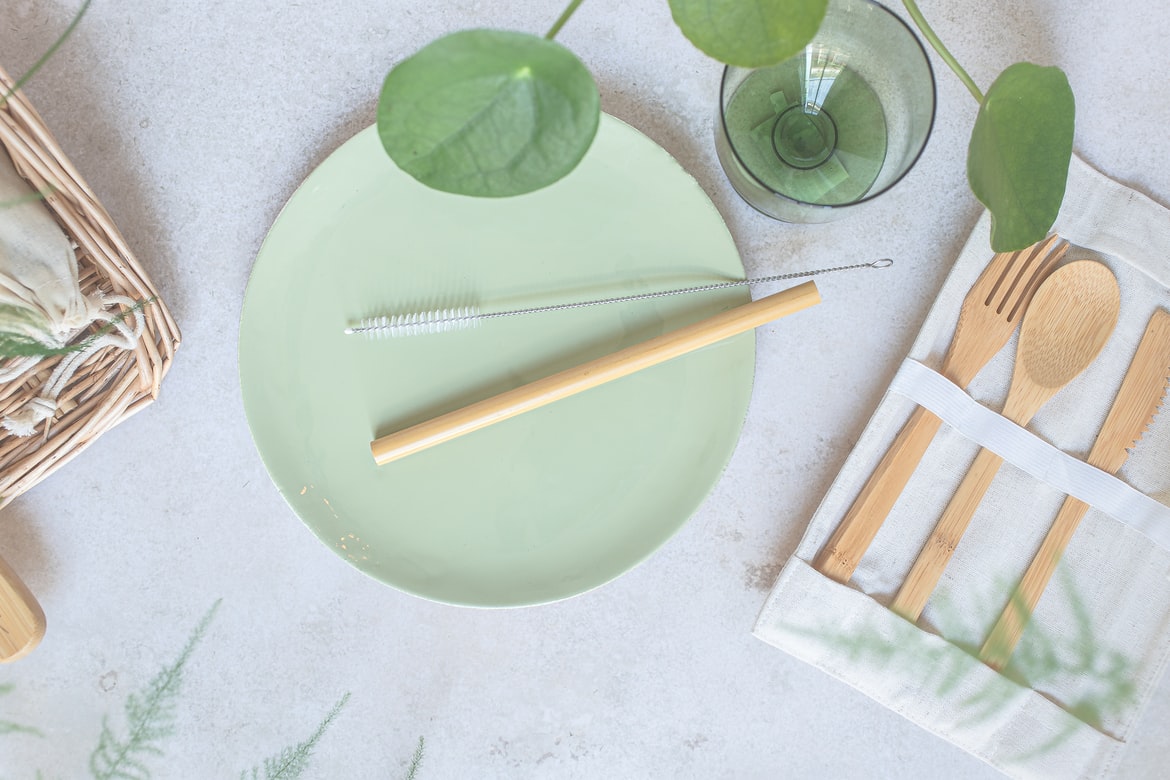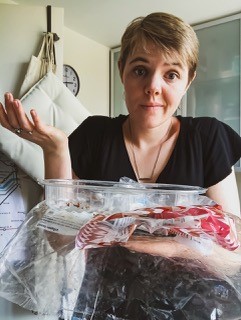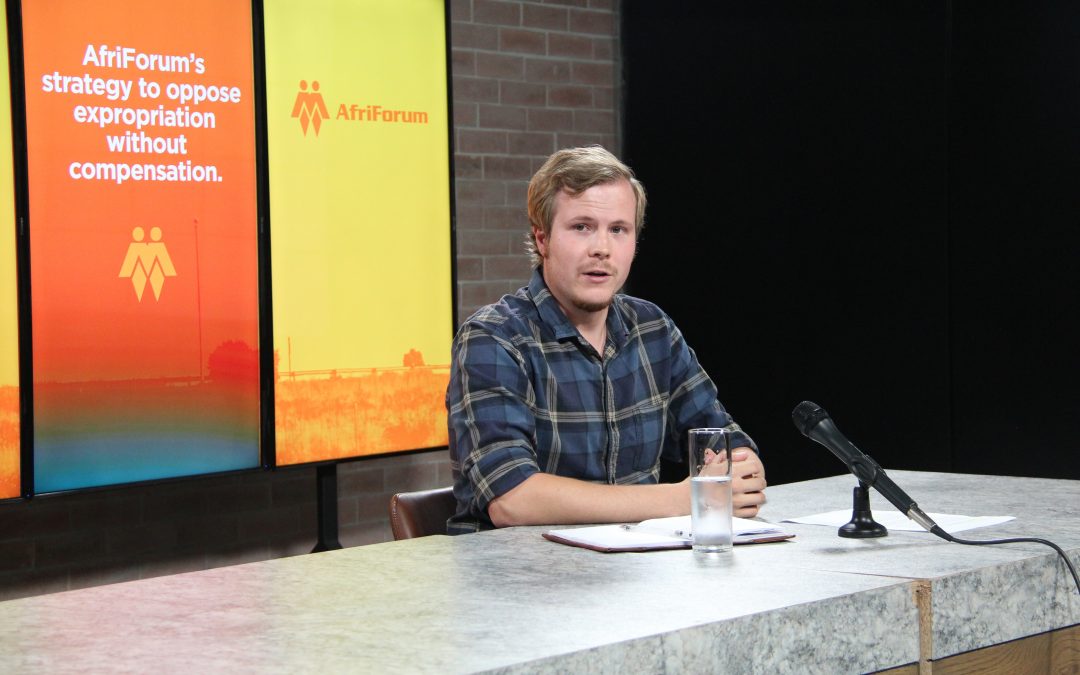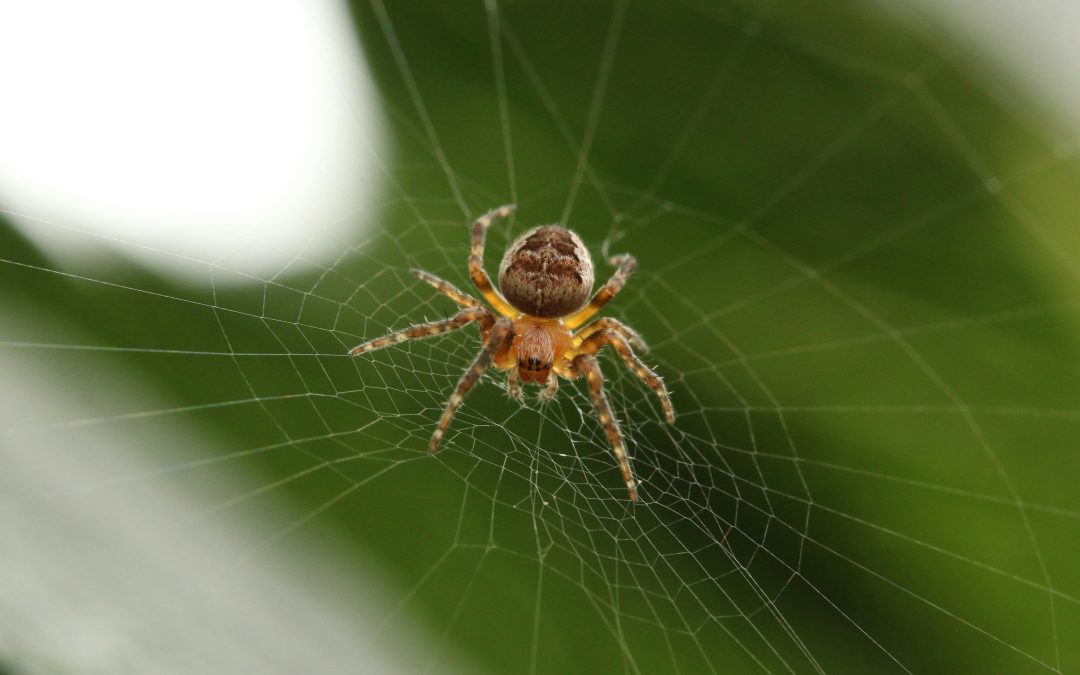In just a few months we went from two cars, a flat with built-in cupboards and shelves full of clothes, a kitchen with eight of everything and every appliance you could dream of; to three suitcases and a 70 m2 one-bedroom apartment in London – the beginning of our sustainable living adventure!
In 2018, my husband and I came to the United Kingdom with the idea to stay here for 18 months. We wanted to see and experience as much as possible and thoroughly enjoy our late twenties. When we decided to make the move permanent after a year, we had to think carefully about how we would live out our passion for the more sustainable lifestyle that we had discovered here in England.
We started with the five Rs of a sustainable lifestyle, and it has truly enriched our lives.
Refuse
The first step to sustainable living is to become aware of products and processes that harm the planet. For the first three years in England, we did not have a car. We used to have two cars when we were in South Africa, but we refused to buy a car while we could use London’s perfectly adequate public transport.
When we moved to the countryside last year and adopted our husky, we decided it was time for a car. However, we decided that such a big financial decision should also be an investment in the planet’s future. Our research revealed that by 2030 no petrol or diesel cars will be sold in the United Kingdom, so we bought an electric car.
Reduce
In some ways, this was the easiest step. When we decided to make our move permanent, we had to go back to South Africa and sort through all our stored belongings. After 12 months of a minimalist lifestyle, we realised that experiences are more important than having lots of possessions.
By reducing, and buying less when we did buy, we could afford better quality and have more money and time for adventures in our country.
Reuse
The throwaway culture here in England is terrible, mainly because it’s so easy to quickly buy a new item on Amazon. We had to decorate our house almost from scratch and decided to buy reusable items rather than items that we would use only once. For example, I replaced baking paper with silicone baking mats.
My favourite substitute is the tissue box that I replaced with handkerchiefs I inherited from my great-grandmother. What used to feel old-fashioned is now both sustainable and memorable – I can reuse my handkerchiefs time and time again, and it also reminds me of my family and roots.
Repurpose
When you do not have relatives close by from whom you can borrow a sofa or a grandma from whom you may inherit an old dining room suite, you sometimes think IKEA is the cheapest, fastest choice. However, we found that a Saturday in the second-hand shop can sometimes produce a more beautiful jewel and will last longer than the IKEA item.
Not only does it give extra character to your home, but you also give new life to an article that would otherwise have ended up in the refuse yard and would never really perish. Yes, it may take a little longer to get that perfect item, but you appreciate it so much more than the quick bargain. It makes your home unique, and each item has its own story – sometimes even an adventure, like the two dining room chairs that we hauled home on our bikes after someone threw them out.
Recycle
An important lesson we have learned in the United Kingdom is that recycling is not the same everywhere – it differs from country to country and even between cities. We also realised that we had never been taught recycling symbols in South Africa but that it was essential to know what could be recycled and what could not.
Moving generates a lot of waste, so we started looking for recyclable packaging materials. We also had to learn how recycling worked in the area where we live. Today we recycle almost everything and put out very little rubbish. So, we do our part to keep the planet clean.
Bonus: Local is still lekker in your new country
When you move overseas and suddenly have free access to Amazon and almost every international store under the sun, it’s hard to think that local shopping can still be fun, but I promise you it is! Part of a sustainable life is thinking about the carbon emissions of your products. The transportation of products is one of the biggest contributors to carbon emissions. By buying products at smaller stores in your area or country, you not only support the community but also lower carbon emissions. You are therefore doing something important for the planet.
We are still learning every day how to live more sustainably, and over the last four years this lifestyle has saved us a lot of money and taken us on many new adventures!
- Andri Johnston is the author of a blog called The sustainable library. Visit her website for hints on sustainable living.













